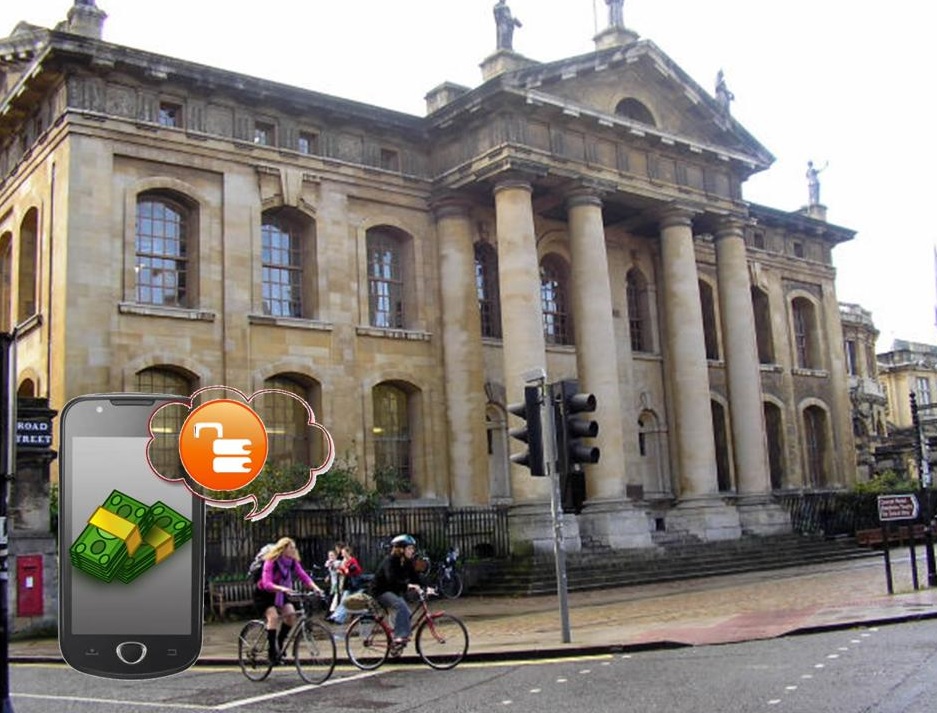This new tech could provide regular consumers with the same level of security as used by the military.
Professor Bill Roscoe and his team at the University of Oxford have been pursuing what has been called “spontaneous security” for about a decade and have now been able to create it in the form of a very powerful, defense-grade security in mobile payments technology.
This would make it possible for people to use their smartphones as wallets without being worried about theft.
The team has come up with a mobile payments technology that would make it possible to easily and inexpensively create secure ad hoc communication networks so that two or more devices could safely communicate in a way that they have never been able to at any other time. Professor Roscoe explained that “What we have been working on all this time is contextual authentication: ways of identifying someone by the context they are in when you don’t have their mobile number, name or anything like that.”
The security protocols followed by the algorithms in this mobile payments technology are very high.
 These security levels are great enough to be appropriate for the US Navy, that contributed $1 million to the project, in addition to the £100,000 from the U.K.’s Ministry of Defence. The tech was taken to Kenya by the British Army, which used the security software in protocols on maneuvers. That software was spun off by the commercialization company at Oxford, Isis Innovation, which then formed OxCept. This allowed it to be converted for use in transactions.
These security levels are great enough to be appropriate for the US Navy, that contributed $1 million to the project, in addition to the £100,000 from the U.K.’s Ministry of Defence. The tech was taken to Kenya by the British Army, which used the security software in protocols on maneuvers. That software was spun off by the commercialization company at Oxford, Isis Innovation, which then formed OxCept. This allowed it to be converted for use in transactions.
There has already been considerable interest in OxCept within the industry, as even PayPal has been looking into the research being conducted and the outcomes produced by Roscoe’s team. This has also led to another first, which will occur as the Oxford spin-out, when it has a base in both London and Silicon Valley. The purpose will be to try to grab hold of a good sized share of the market for mobile payments, which is predicted to become massive in the next few years.
In fact, KPMG has predicted that the mobile payments technology marketplace will be worth over $1 trillion by the close of 2015.
Security could derail mobile payments in Ghana
Mobile payments have been gaining strong attention all over the world. As consumers become more heavily reliant on their smartphones and tablets, their interest in a cashless society grows. Such is the case in the African country of Ghana. More consumers in Ghana are gaining access to mobile technology and the government has been fostering a dream of a cashless economy that it has expected to see come to fruition in the near future. Mobile payments make a home in a perilous landscape, however, and the digital world contains threats that could derail Ghana’s dream economy.
Mobile security systems are still very lax
As mobile payments become more common in Ghana, so too does hacking and fraud. Internet fraud is quite active in Ghana; somewhat more so than in other African countries. Government officials have not yet found a way to curb this fraud or mitigate the damage that can be caused by hackers and these threats have stymied the growth of mobile commerce throughout the country. Major security issues may indeed prevent Ghana from attaining its dream of a cashless economy.
 Developing a cashless economy proves challenging
Developing a cashless economy proves challenging
In order to develop a new and comprehensive monetary system, Ghana will have to find a way to make mobile payments secure. This is no small task, as security remains a major problem even for countries like the U.S. and China when it comes to the issue of mobile payments. Even large companies like Google and Samsung have yet to find a way to make mobile payments completely secure. The threats that exist in the digital space have not yet become enough to deter consumers, however, many of whom are willing to participate in mobile commerce regardless of the risks they face.
Cash holds an important place with many businesses
Security issues are not the only challenge that Ghana faces in its hopes of establishing a cashless economy. There is currently a large volume of currency in circulation throughout the country, which makes the transition away from cash somewhat difficult. Moreover, physical currency plays a big role in many aspects of business in the country. Some small businesses will only accept payments that are made with cash and refuse to embrace mobile payments in any way whatsoever.
 These security levels are great enough to be appropriate for the US Navy, that contributed $1 million to the project, in addition to the £100,000 from the U.K.’s Ministry of Defence. The tech was taken to Kenya by the British Army, which used the security software in protocols on maneuvers. That software was spun off by the commercialization company at Oxford, Isis Innovation, which then formed OxCept. This allowed it to be converted for use in transactions.
These security levels are great enough to be appropriate for the US Navy, that contributed $1 million to the project, in addition to the £100,000 from the U.K.’s Ministry of Defence. The tech was taken to Kenya by the British Army, which used the security software in protocols on maneuvers. That software was spun off by the commercialization company at Oxford, Isis Innovation, which then formed OxCept. This allowed it to be converted for use in transactions.
 Developing a cashless economy proves challenging
Developing a cashless economy proves challenging